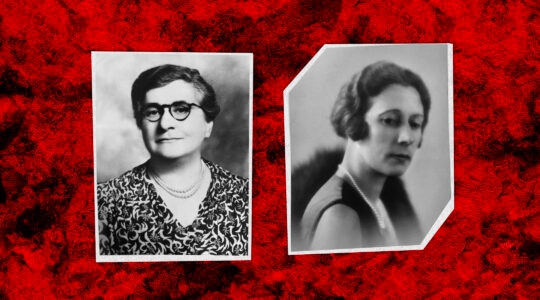Having been involved in institution-building in the Russian-speaking community for some time, I am compelled to suggest an alternative viewpoint to Steve Lipman’s article, “New Generation Of Russian Jews Now Making Its Mark,” July 13.
While more recognition of growing Russian-speaking presence in American Jewish world is useful and important, our community is way more complex and multifaceted than can be captured by convenient generalizations and juxtapositions (such as old vs. young, more vs. less Americanized). Unfortunately, the article relies on these to present an overly triumphalist and simplified picture that fits a preconceived notion of advancement: “young Russian Jews are hipper, wealthier and more actively Jewish than their parents …no longer a poor immigrant group that needs to be supported… No longer a community of mostly engineers and doctors, no longer segregated in South Brooklyn and Central Queens, no longer immigrants but acculturated, hyphenated Americans…”
But the Russian-speaking community is not insulated from the realities of American society, where many young, talented, and well-educated people of all creeds are struggling very hard for their place in the economy. This recent UJA-Federation study shows 20 percent of all adult Russian speakers under the age of 65 living in poverty.
Further, the article proceeds from the mistaken assumption that Russian-speaking immigration has ceased, and therefore the community can be conveniently dissected into the “immigration wave of the 1980s and ‘90s” and their children who grew up in America.
In fact, between 2002 and 2011, the number of new immigrants from the main Russian-speaking republics of the former Soviet Union where Jews live was around 400,000. And there are perhaps just as many de facto immigrants from the FSU, many of them Jewish by the survey’s definition, struggling to obtain permanent status and settle in America. Many of the both de jure and de facto immigrants that I recently met, mostly young and middle-aged professionals, left their native country for political as well as economic reasons and, while certainly better off than Soviet-era émigrés, they still deserve assistance with integration and representation of their interests, just as other immigrants do. And yet many of them often feel to be completely off the radar screen of our communal institutions.
Completely ignoring the people who continue to arrive would be at odds with the very biblical values that many of us would like to see imbibed by Russian Jews through their integration in the American Jewish community.
President & CEO, Russian-Speaking Community Council of Manhattan & the Bronx, Inc.,
The New York Jewish Week brings you the stories behind the headlines, keeping you connected to Jewish life in New York. Help sustain the reporting you trust by donating today.




